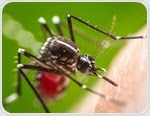| ||||||||||||||||||||||||||||||
| ||||||||||||||||||||||||||||||
| ||||||||||||||||||||||||||||||
| ||||||||||||||||||||||||||||||
| ||||||||||||||||||||||||||||||
| ||||||||||||||||||||||||||||||
miércoles, 15 de agosto de 2018
Genetics - Aug 15, 2018 Edition
Health News and Information - News Medical
Suscribirse a:
Enviar comentarios (Atom)









































No hay comentarios:
Publicar un comentario